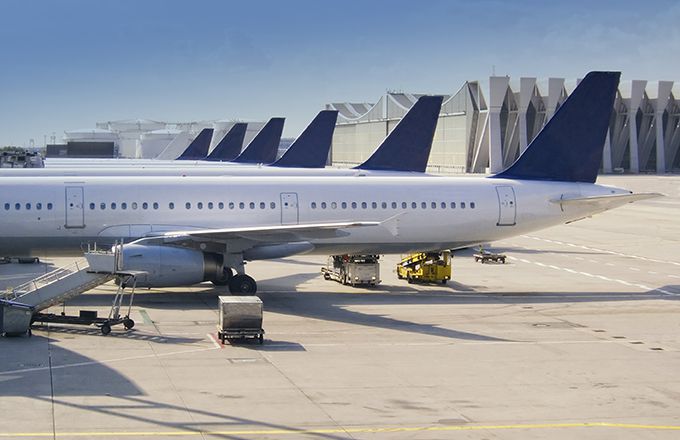The U.S. airline industry is bracing for a challenging year as Wall Street analysts slash price targets and downgrade ratings ahead of earnings reports this week. Concerns over faltering travel demand, coupled with macroeconomic pressures such as tariffs and inflation, are driving significant shifts in investor sentiment.
For years, consumers prioritized spending on travel and experiences over goods, even in the face of inflation. However, sentiment has shifted sharply. Analysts now expect major airlines to revise their 2025 outlooks downward, reflecting weaker-than-anticipated corporate and leisure bookings. Delta Air Lines (NYSE: DAL), American Airlines (NASDAQ: AAL), and Southwest Airlines (NYSE: LUV) have already lowered their first-quarter projections, citing disappointing demand trends and macroeconomic uncertainties.
Savanthi Syth, an analyst at Raymond James, highlighted the growing challenges during an interview with CNBC: “The extent of the sell-off is more severe than the current reality, but it doesn’t necessarily imply that it won’t become the reality in six months”. This cautious tone underscores broader concerns about the sustainability of consumer willingness to pay premium prices for travel.
Wall Street firms have responded decisively to these developments. UBS slashed its price targets for Delta Air Lines and United Airlines (NASDAQ: UAL) by 45%, while Alaska Airlines (NYSE: ALK) saw a 28% reduction. Ratings for these carriers were downgraded from “buy” to “neutral”. Susquehanna followed suit, lowering United’s target by 31% to $90 per share and revising forecasts for 2025 and 2026. Meanwhile, Jefferies downgraded Delta, American Airlines, and Southwest last week, citing “disappointing” consumer sentiment.
The Dow Jones U.S. Airlines Index reflects the sector’s struggles, dropping 16% since President Trump announced new tariffs last week. Year-to-date, the index has plunged by 35%, illustrating the steep decline in investor confidence.
The Trump administration’s recent imposition of tariffs exceeding 10% has compounded challenges for airlines. These measures are expected to dampen cross-border travel demand, particularly between Canada and the U.S., while increasing operational costs. Canadian carriers like Air Canada are already grappling with reduced traffic south of the border due to a 25% tariff on Canadian goods.
Despite these headwinds, global airline profitability is projected to improve slightly in 2025. The International Air Transport Association (IATA) forecasts net profits of $36.6 billion for the year, a modest increase from $31.5 billion in 2024, driven by lower oil prices and tight cost controls. However, thin margins remain a concern, with airlines expected to earn just $7 per passenger on average.
Passenger demand is anticipated to grow by 8%, outpacing capacity expansion at 7.1%. While this suggests operational efficiency gains, persistent supply chain challenges and rising tax burdens could erode profitability further.
Delta Air Lines remains a focal point due to its lucrative business model targeting high-income travelers willing to pay extra for premium seating options. However, analysts warn that even Delta may face pressure from weakening consumer sentiment and macroeconomic uncertainties. United Airlines retains a “buy” rating from Jefferies thanks to its forward-looking strategy beyond 2025, but it is not immune to broader industry challenges.
As earnings season begins this week, investors will closely watch how airlines adjust their guidance for the remainder of the year. The sector’s ability to navigate economic turbulence will be critical in determining whether it can stabilize amid growing uncertainties.
U.S. airlines appear to be positioned for a difficult year ahead as weakening travel demand and external pressures weigh heavily on their outlooks. Investors are bracing for further adjustments as carriers grapple with shifting consumer priorities and macroeconomic headwinds.

